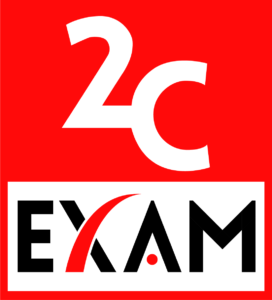According to the SFC Code of Conduct for Licensed Persons or Registered Persons regarding employee trading: licensed corporations/registered institutions (hereinafter referred to as companies) need to establish policies and inform employees in writing whether they are allowed to engage in personal trading in stocks, futures contracts, or leveraged foreign exchange contracts.
If the company allows employees to engage in personal trading or purchase securities, futures contracts, or leveraged foreign exchange trading contracts, the following is required:
Written policy outlining the conditions that employees must comply with when engaging in personal trading;
Employees must report all relevant accounts to management, including accounts of minor children and accounts in which the employee has a beneficial interest;
Generally, employees should conduct personal trading through their employer’s company or its affiliated companies;
If employees are allowed to trade personally through other brokers, copies of trade confirmations and account statements must be provided to company management;
Employee accounts and related accounts transactions must be recorded separately and clearly identified in the company’s records;
Management with no conflict of interest must supervise and review employee trading to prevent misconduct and ensure that it does not harm the interests of other clients.
In addition, a company may not knowingly trade securities or futures contracts for employees of another company unless it has obtained written consent from the other company.
Therefore, whether employees of Hong Kong licensed corporations/registered institutions can trade stocks mainly depends on whether their own company allows it, that is, the boss has the final say.
If allowed, it is not an immediate green light for trading stocks happily; employees still need to follow the company’s internal regulations. What internal regulations are usually in place?
Trade declaration and approval: Declare to the employer before making any transaction, and in some cases, obtain written approval from the company’s compliance department or supervisor before trading. This typically includes providing details about the securities, quantity, and price of the proposed transaction to ensure that the company understands the employee’s trading activity and prevents potential insider trading or conflicts of interest.
So, want to make a fortune in the stock market? Don’t forget to report to your boss first and get approval! Also, don’t hide your and your family’s trading activities!
Trading window periods: Trade within so-called “trading window periods.” These window periods typically begin after the company releases financial reports or other significant information to ensure that employees do not trade based on internal information.
So, have you heard any internal secrets? Don’t get excited! Never trade using this information; it is strictly forbidden!
Minimum holding period: Follow a minimum holding period, such as 30 or 60 days. This helps prevent employees from engaging in short-term trading based on internal information.
Bought stocks and want to sell them quickly? Don’t rush, take your time! Wait for 30 or 60 days before taking action.
Blacklist/restricted list: Prohibit or restrict trading in certain companies’ stocks, especially those related to the employer or clients. This helps prevent potential conflicts of interest and insider trading. Some stocks are off-limits; don’t touch them! Company resources are not for you to trade stocks with, and your trading activities must not affect the interests of the company and its clients; this is the bottom line!
Now, for a bonus question: if Xiao Mei is an employee of a Hong Kong asset management company, can she trade stocks? If so, what restrictions would apply?
-Xiao Mei may need to disclose and obtain approval from the company before engaging in personal trading.
-Xiao Mei may be prohibited from trading stocks held by the funds managed by the company to avoid conflicts of interest.
-Xiao Mei may need to follow a minimum holding period, such as 30 or 60 days, to prevent short-term trading.
-If Xiao Mei obtains non-public information about a company, she should comply with insider trading regulations and avoid trading while in possession of such information.
How can we help?
2CExam provides HKSI LE, IIQE, EAQE and SQE related exam preparation materials. We sell mock question banks for HKSI LE Papers 1, 2, 3, 5, 6, 7, 8, 9, 12 in Chinese and English; and bibles for HKSI LE Papers 1, 2, 6, 7, 8 in Chinese. We also offer 1 on 1 tutorial services. Besides, we have also made free tutorial videos for HKSI LE Papers 1, 2, 6, 7, 8, 12 and posted on public channels such as Youtube/ Bilibili/ Tencent/ Iqiyi. 2CExam has been an exam training expert for years. Should you need any help please visit www.2cexam.com or contact us through:
Phone +852 2110 9644 Email: [email protected] Wechat: hk2cexam WhatsApp: +852 9347 2064
Please support us by leaving comments and likes if you think this article helps you!
You can scan or click on the QR codes to visit our social media.
Latest Article
Categories
過往文章
Contact US
-
Phone:
+852 2110 9644
-
Email:
-
WhatsApp
+852 9347 2064
-
WeChat
hk2cexam
Interesting Articles
Minimum academic requirements for applying for an IA license
Is there a minimum education requirement for the insurance industry? The conditions for licensing in the insurance industry are included in the “Fit and Proper” Guidelines (GL23/Guideline 23) issued by the Insurance Authority. All intermediaries who wish to be licensed must abide by this guideline. IA listed the educational requirements for intermediaries…
Minimum academic requirements for applying for a SFC license
Is there a minimum education requirement for the securities industry? The licensing requirements for the securities industry are set by the Securities and Futures Commission (SFC) and compiled into the Guidelines on Competence. All intermediaries who wish to be licensed or registered for regulated activities are required to abide by this guideline. SFC lists…
How should I apply for a license if I want to engage in the real estate industry? What conditions must I meet?
First of all, to apply for a real estate intermediary license, you need to meet the “Fit and Proper” Guidelines issued by the Estate Agent Authority, such as passing EAQE or SQE. Secondly, The financial status of the applicant will also be reviewed, and the applicant cannot be under bankruptcy status or enter…
How do I apply for a license if I want to engage in the insurance industry? What conditions must I meet?
The insurance industry can not only help some people who may have urgent needs in the future, but also enables agents to possibly make a lot of money, as well as meet wealthy people, hence it is a very attractive profession. To go back to the basics, if a candidate wants to sell insurance…
How should I apply for a license if I want to engage in the securities industry? What conditions must I meet?
In the finance, banking, and securities industries, there are millions of assets flowing in and out everyday to say the least. Many people are eager to meet wealthy people, earn a generous amount of commission income, and even easily be in control of the stock market. However, to go back to the basics, if…
Who should I contact if I have questions about licensing in the real Estate industry? Why can’t I contact PEAK? Should I contact 2CEXAM?
Many students who want to become insurance intermediaries may have some questions regarding what exams to take and what to pay attention to when issuing licenses; with that, they might not know who to ask. Should candidates ask 2CExam? PEAK? Or the Estate Agents Authority ? In fact, PEAK is only responsible for…
Who should I contact if I have questions about licensing in the insurance industry? Why can’t I contact PEAK? Should I contact 2CEXAM?
Many students who want to become insurance intermediaries may have some questions regarding what exams to take and what to pay attention to when issuing licenses; with that, they might not know who to ask. Should candidates ask 2CExam? PEAK? Or the Insurance Authorities? In fact, PEAK is only responsible for organising exams,…
Who should I contact if I have questions about licensing in the securities industry? Why can’t I contact HKSI? Should I contact 2CEXAM?
Many students who want to become securities practitioners may have some questions regarding what exams to take and what to pay attention to when issuing licenses; with that, they might not know who to ask. Should candidates ask 2CExam? HKSI? Or the SFC? In fact, HKSI is only responsible for organising exams, issuing…
What is the difference with the IIQE examination after the Insurance Authority (IA) takes over the insurance industry?
The long-standing self-regulatory method of the insurance industry officially ended on September 23, 2019. Beginning on September 23, 2019, the Insurance Authority (IA) took over the management of all compliance, licensing, monitoring and disciplinary matters for the entire insurance industry. After taking over, the Insurance Authority (IA) has also made changes to some of…
Is the Estate Agents / Salespersons Qualifying Examinations paper-based exam or the computer-based exam easier? Which is better to partake in?
Many people are curious about the differences between the EAQE/SQE’s computer- based exam and the paper- based exam. As per the two exams’ content, they are pretty much identical. The two exams use the same Study Guide to Estate Agency Law and Practice and other study material, the exam questions are drawn in…





